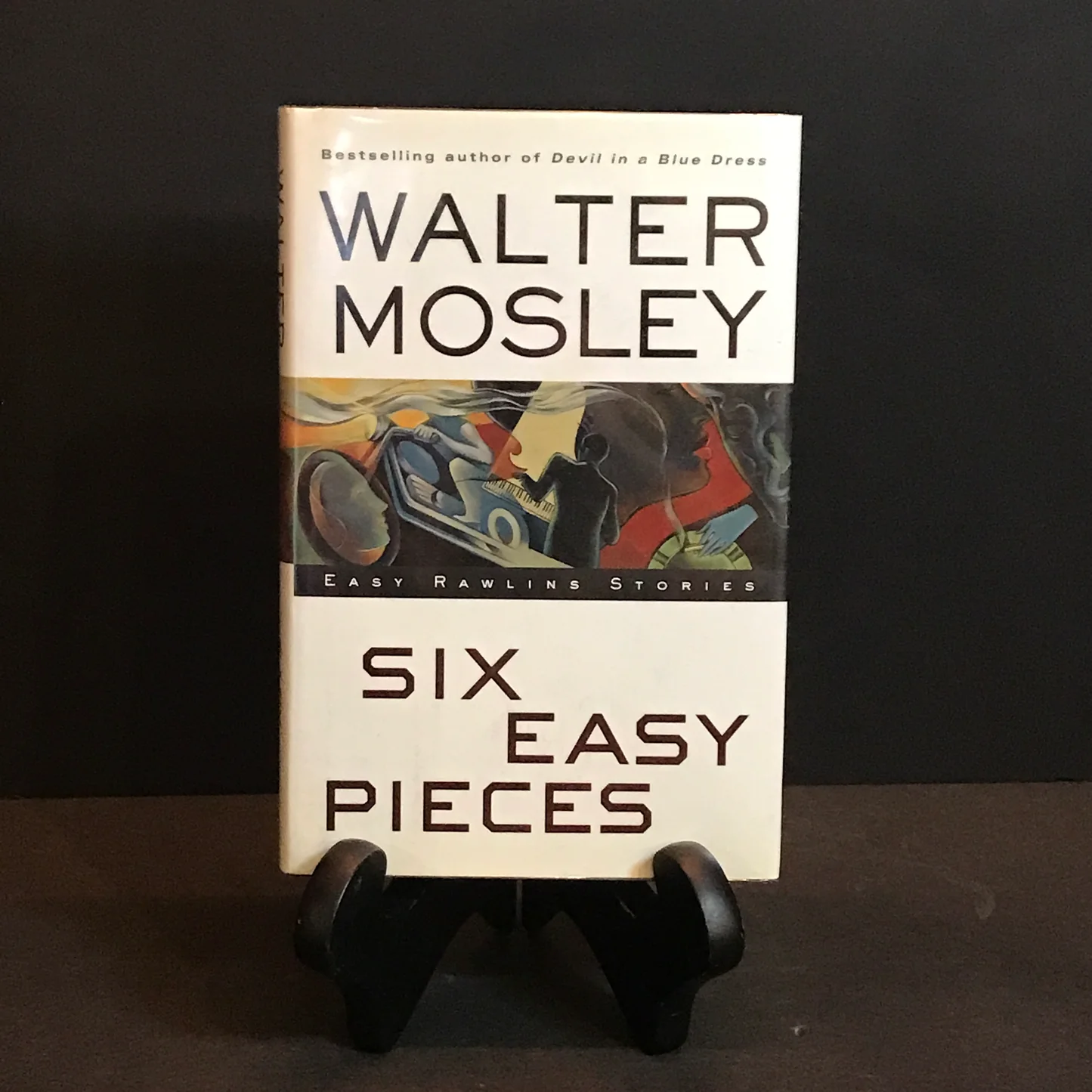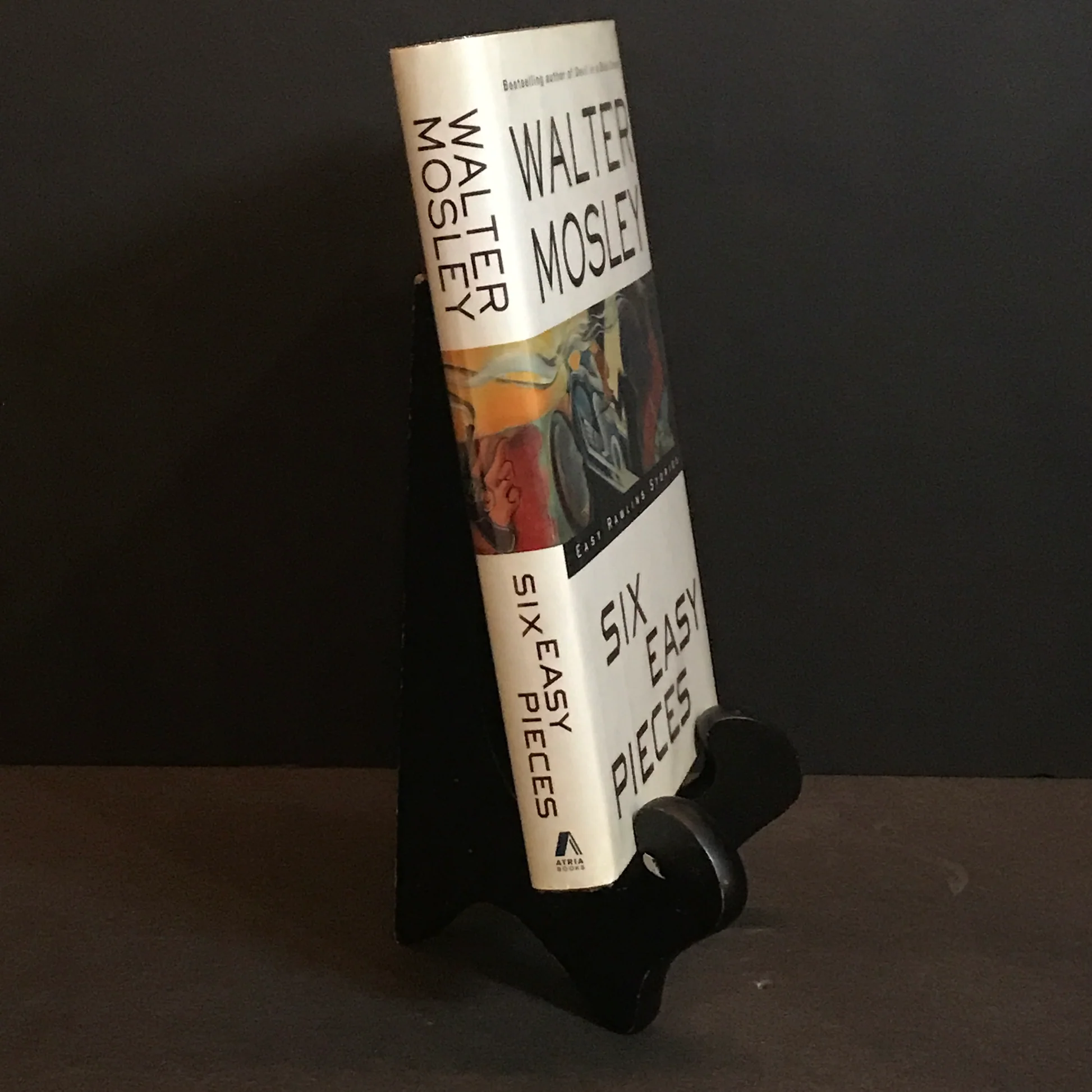I’ve always been a fan of detective novels, but it wasn’t until a friend recommended Walter Mosley’s Easy Rawlins series that I discovered the gritty, soulful world of 1960s Los Angeles through the eyes of a Black detective. When I picked up “Six Easy Pieces,” I was eager to dive back into Easy’s world, even though I hadn’t read all the previous books in the series.
From the first page, I was immediately drawn into Easy Rawlins’ complex life. Here’s a man who seems to have it all – a steady job as a school custodian, a loving family, and a nice home. Yet, there’s an undercurrent of restlessness and melancholy that resonated deeply with me. Easy’s struggle to find contentment in his seemingly stable life felt all too familiar, reminding me of my own moments of existential questioning.
What struck me most about this collection of stories was Mosley’s ability to weave together multiple narratives that, while standalone, created a rich tapestry of Easy’s world. Each case Easy takes on – from a bomb threat at his school to helping a friend clear his name of murder – peels back another layer of 1960s Los Angeles. Mosley’s vivid descriptions transported me to a time and place I’ve never experienced firsthand, yet felt intimately familiar through his words.
One of the book’s greatest strengths is Mosley’s masterful character development. Easy Rawlins isn’t just a detective; he’s a fully realized human being with flaws, desires, and a moral compass that sometimes wavers but always points true. I found myself deeply invested in his personal struggles, particularly his mourning for his friend Mouse and the tension in his relationship with Bonnie.
However, if I had to point out a weakness, it would be that some of the stories felt a bit repetitive in structure. Easy gets called in to help, investigates, encounters danger, and resolves the case. While each story had its unique elements, I sometimes wished for more variation in the overall arc.
There were several passages that stuck with me long after I finished the book. One in particular resonated deeply:
“Freedom for us has always been dangerous. Freedom for us has been a crime as far back as our oldest memories. And so whenever we’re feeling liberation we know that there’s somebody nearby with a rope and a collar, a shotgun and a curse.”[3]
This quote encapsulates the underlying tension that runs through the entire book – the precarious nature of freedom for Black Americans, even in the supposedly progressive 1960s. It made me reflect on how far we’ve come as a society, and how far we still have to go.
Mosley’s writing style is a perfect blend of hard-boiled detective prose and lyrical introspection. His dialogue crackles with authenticity, and his descriptions of Los Angeles paint a vivid picture of a city teeming with life, danger, and hidden secrets. I found myself rereading passages just to savor the way Mosley crafts his sentences.
Reading “Six Easy Pieces” made me think deeply about justice, race relations, and the complexities of human nature. It challenged me to consider perspectives I hadn’t before, especially regarding the African American experience in mid-20th century America. The book doesn’t offer easy answers, but it asks important questions that lingered with me long after I turned the last page.
I would wholeheartedly recommend this book to anyone who enjoys thoughtful, well-crafted detective fiction. It’s not just a collection of mysteries; it’s a window into a pivotal time in American history, seen through the eyes of a compelling, complex character. Even if you haven’t read the previous Easy Rawlins novels (like me), you’ll find “Six Easy Pieces” accessible and engaging.
In the end, what I appreciated most about this book was its ability to entertain while also provoking thought and emotion. It’s a rare combination, and one that has me eager to explore more of Walter Mosley’s work. “Six Easy Pieces” may be a quick read, but its impact is anything but easy to forget.